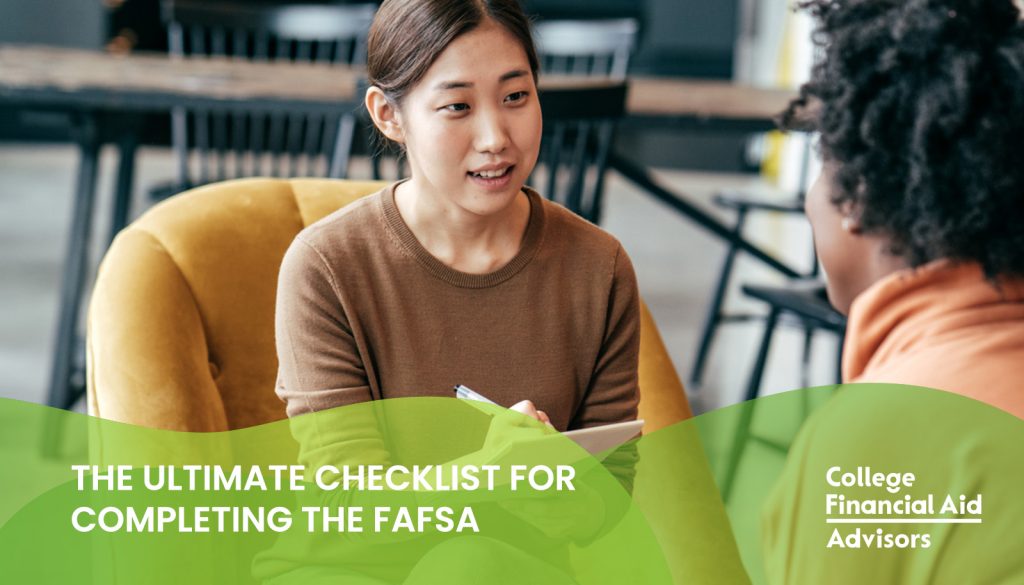High school seniors who are ready to unlock financial aid and take the next step toward your education, it’s time to file your FAFSA. Completing the FAFSA (Free Application for Federal Student Aid) is one of the most important tasks you’ll need to tackle as you prepare for college. Whether this is your first time applying or you’re a seasoned pro, this ultimate checklist will guide you through every step to ensure you don’t miss anything crucial.
1. Create Your FSA ID
Before you even start filling out the FAFSA, you’ll need an FSA ID (Federal Student Aid ID). This will act as your electronic signature, and you’ll use it to sign and submit your application.
- How to do it: Go to fsaid.ed.gov to create your ID. You’ll need to provide your name, date of birth, Social Security number, and other details.
- Pro Tip: Keep your FSA ID safe and don’t share it with anyone, as it’s like your personal password to all things FAFSA-related.
2. Gather Your Documents
The FAFSA asks for a lot of personal and financial info, so it’s best to have everything ready before you start. The FAFSA will pull your tax information from the IRS, but it’s good to have other documents ready. Here’s a list of the most common documents you’ll need:
- Social Security Number (SSN)
- Driver’s License number (if applicable)
- W-2 Forms (or your most recent pay stubs if you don’t have W-2s)
- Bank Statements and records of savings and investments
- Records of Untaxed Income (if applicable, such as child support, veteran’s benefits, etc.)
3. List the Colleges You’re Applying To
You can list up to 10 colleges or universities on the FAFSA. They’ll all receive your financial aid information automatically, so make sure you include every school you’re considering applying to. Even if you haven’t made a decision yet, it’s a good idea to list multiple schools.
4. Fill Out the FAFSA Form
Now it’s time to start filling out the actual FAFSA! You can do this online at fafsa.gov, or you can download the myStudentAid app on your phone. Make sure to enter everything as accurately as possible.
- Personal Information: This includes your name, address, SSN, and more.
- School Information: Enter the schools you listed earlier.
- Financial Information: This is where your parents (if you’re a dependent student) will need to provide their income and tax info.
- Dependency Status: The FAFSA will ask if you’re a dependent or independent student. Most high school seniors will be considered dependent, meaning your parents’ info is required.
5. Double-Check Everything
Before you hit submit, take a moment to review all of your answers. Double-check your personal information, school choices, and financial details to ensure there are no mistakes. A small error (like a typo in your SSN) can delay the process, so be thorough!
6. Sign and Submit
Once everything is filled out correctly, it’s time to sign the FAFSA. If you’re a dependent student, your parents will also need to sign it. You can sign electronically with your FSA ID. After you’ve signed, hit submit! You’ll receive a confirmation page with a submission number. Save this for your records!
7. Follow Up
After submitting the FAFSA, you’ll receive a Student Aid Report (SAR). This report summarizes the information you provided and tells you your Expected Family Contribution (EFC). It’s important to review your SAR to make sure there are no mistakes. Your chosen schools will use this information to determine how much financial aid you’re eligible for. You may be asked to provide additional documents, so be prepared.
Why It’s Worth Completing the FAFSA
Completing the FAFSA opens the door to a range of financial aid options, from federal grants to loans to work-study opportunities. Even if you think you might not qualify for aid, you should still apply—many students are surprised by the amount of aid they receive!
By following this checklist and staying organized, you’ll be on your way to securing the financial support you need for college. Start early, stay on top of deadlines, and don’t hesitate to reach out for help if you get stuck.
Good luck!
More about Jodi and College Financial Aid Advisors
Jodi is a FAFSA financial advisor who helps with the financial aid process to help families of college students maximize their financial aid. From completing the FAFSA and completing the CSS Profile to reviewing the SAR, responding to requests for verification, comparing financial aid offers and understanding student loan options, Jodi is a fantastic resource when it comes to student financial aid. Schedule a 15 Minute Power Chat to learn more about finding ways to pay for college.

